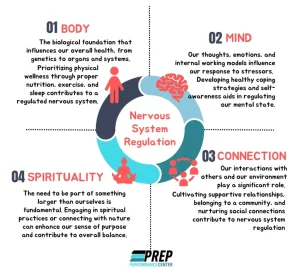
Let’s be honest. Modern life is a pressure cooker. Between the endless pings of notifications, work deadlines, and the general hustle, our nervous systems are running a marathon they were never designed for. You know the feeling—that wired-but-tired sensation, the mental fog, the constant, low-grade hum of anxiety.
Well, what if nature already had a solution? Not a quick fix, but a time-tested, gentle way to help your body cope. Enter adaptogenic herbs. They’re not a new-age fad; in fact, they’ve been the cornerstone of Ayurvedic and Traditional Chinese Medicine for thousands of years. And they’re having a serious moment for a very good reason: they work.
What Exactly Are Adaptogens? (No, It’s Not Magic)
Think of adaptogens less like a specific vitamin and more like a personal trainer for your adrenal system. These are a unique class of healing plants that help your body adapt to and resist physical, mental, and emotional stressors.
Here’s the deal: when you encounter stress, your body goes through a three-stage process called General Adaptation Syndrome (alarm, resistance, exhaustion). Adaptogens essentially help lengthen that resistance phase. They bring your body back to balance, or homeostasis. If stress is a seesaw constantly tipping out of control, adaptogens are the stabilizing weight in the center, gently bringing everything back to level.
The All-Star Lineup: Herbs for Your Unique Stress Profile
Not all stress is created equal, and neither are adaptogens. Some are calming, some are energizing. The key is to match the herb to your specific needs. Let’s meet the team.
For The Wired and Tired: Ashwagandha
This is arguably the rockstar of the adaptogen world. Ashwagandha is renowned for its ability to soothe the nervous system. If you’re the type who lies in bed with your mind racing after a long day, this might be your herb. It’s fantastic for promoting restful sleep, reducing cortisol (the primary stress hormone), and combating that feeling of burnout. It’s like a warm, calming blanket for your entire endocrine system.
For The Overwhelmed and Foggy: Rhodiola Rosea
Ever have those days where you just can’t seem to focus? Where mental fatigue has you staring at a screen without absorbing a single word? Rhodiola is your go-to. It’s known as a stimulating adaptogen—it helps fight fatigue and enhances mental clarity and focus, especially under pressure. It’s the natural equivalent of a clear, sharp gust of wind blowing away the brain fog.
For The Stressed Immune System: Holy Basil (Tulsi)
In India, Holy Basil is revered as “The Incomparable One.” And for good reason. While it certainly helps with anxiety and mood, Tulsi is particularly powerful for supporting the immune system, which is often compromised by chronic stress. It’s a gentle, uplifting herb that’s wonderful as a daily tea. It doesn’t overpower; it just… helps.
For The Needing Steady Energy: Asian Ginseng
A classic. Ginseng is a potent adaptogen for boosting energy and endurance. It’s best for those dealing with prolonged stress that has led to fatigue and a general lack of vitality. Think of it as building your foundational resilience from the ground up, rather than giving you a jittery, caffeine-like spike.
How to Weave Adaptogens Into Your Daily Routine
Okay, so you’re sold on the concept. But how do you actually use these things? The beauty is in their flexibility. Consistency is more important than dosage.
- Tinctures & Liquid Extracts: Fast-acting and easy to adjust the dose. Just drop them into a little water, tea, or even your morning smoothie.
- Powders: Incredibly versatile. You can blend ashwagandha or maca powder into your coffee, oatmeal, yogurt, or post-workout shake. Honestly, they can be a bit earthy, so pairing them with strong flavors is a pro-tip.
- Capsules: The ultimate in convenience. No taste, no fuss. Just take them with water as part of your daily supplement routine.
- Teas: A ritual in itself. Sipping on a warm cup of tulsi or a adaptogen-blend tea is a mindful way to de-stress and reap the benefits simultaneously.
A Quick Guide to Choosing Your Herb
| If you feel… | Consider… | Best For… |
| Anxious, unable to wind down | Ashwagandha | Evening use, promoting calm |
| Mentally drained, unfocused | Rhodiola | Morning or early afternoon, boosting focus |
| Run down, getting sick often | Holy Basil (Tulsi) | Daily immune and mood support |
| Physically fatigued, low vitality | Asian Ginseng | Sustained energy, not for evening |
A Few Things to Keep in Mind
Adaptogens are powerful, but they’re not a silver bullet. They work best as part of a holistic approach to stress management. That means they can’t out-supplement a terrible diet or a complete lack of sleep.
It’s also wise to—and I can’t stress this enough—consult with a healthcare professional before starting, especially if you have pre-existing health conditions or are on medication. Start low and go slow. Listen to your body. It will usually tell you what’s working.
And, you know, give it time. These aren’t pharmaceutical drugs that work instantly. They support your body’s innate healing processes, which can take a few weeks of consistent use to truly notice a difference.
The Final Word: Returning to Balance
In our quest to manage modern stress, we often reach for extreme solutions. Adaptogens offer a different path—one of gentle support and natural balance. They remind us that sometimes, the most powerful way to move forward is to help our bodies simply find their center again. It’s not about eliminating stress from life, an impossible task, but about changing our relationship with it. And perhaps that’s the most profound adaptation of all.







